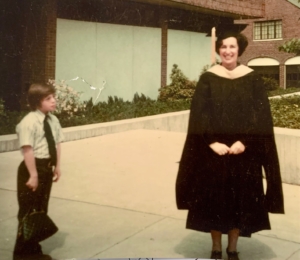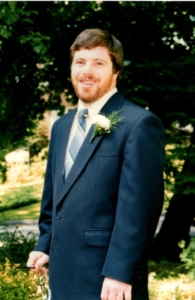Amicus Brief Filed in U.S. Supreme Court Case Emphasizes Harms to People With Disabilities
WASHINGTON, DC – Six leading disability advocacy organizations, with the support of Kellogg Hansen, have filed a “friend-of-the-court” brief in the U.S. Supreme Court in support of the estate of Gorgi Talevski, who alleges that the Health and Hospital Corporation of Marion County, Indiana (HHC) abused and neglected him while in a nursing home. The amicus brief explains why it is important that individuals, particularly those with disabilities, have the ability to sue state and local governments when their civil rights are violated under Medicaid and other public programs. The case, Health and Hospital Corporation of Marion County, Indiana v. Talevski, is scheduled to be heard on November 8, 2022.
The amicus brief focuses focuses on the harmful impact the case will have on people with disabilities, who have long faced pervasive discriminatory treatment within American society. People with disabilities and their families have relied on lawsuits to enforce Medicaid’s antidiscrimination protections, including the landmark Olmstead v. L.C. case. If providers of Medicaid services abuse or mistreat beneficiaries or take away or deny their benefits, private lawsuits – regularly brought by The Arc and its partners – are often the only way to hold government entities accountable and ensure people get the life-saving therapies and everyday living support services they need. Many of these lawsuits will no longer be possible if the Court rules in favor of HHC. Full access to Medicaid services and the right to enforce these services are crucial to achieving community integration for people with disabilities. The brief urges the Court to reaffirm the private right of action to enforce Medicaid guarantees and disability rights.
“This case is a large-scale assault on disability rights around the country,” said Peter Berns, CEO of The Arc of the United States. “Medicaid is the primary source of healthcare for people with intellectual or developmental disabilities, the vast majority of whom want to live with dignity in their homes and communities. Protecting their right to private action when such rights are violated would ensure they aren’t unnecessarily institutionalized and prevent the unraveling of antidiscrimination progress set forth by the ADA for over 30 years.”
“The Supreme Court has signaled that it may strike another blow against civil rights in this case,” said Ira Burnim, Legal Director of the Bazelon Center for Mental Health Law. “An expansive ruling could put at risk the ability of individuals to seek relief in federal court for violations of key civil rights statutes prohibiting discrimination based on sex, race, national origin, or disability.”
“Medicaid covers personal attendants and other in-home services and supports that disabled people need to live in the community and participate in society. Enforcement is a critical right,” said Claudia Center, Legal Director of Disability Rights Education and Defense Fund.
“Congress intended that people with disabilities have the right to enforce Medicaid, just as they do Section 504 of the Rehabilitation Act and the Americans with Disabilities Act. The disability community has used this private right of action to enforce vital civil rights protections repeatedly,” said Maria Town, American Association of People with Disabilities President and CEO. “Any decision from the Supreme Court that does not recognize this right would go against Congress’ wishes, decades of legal precedent, and ultimately, put at serious risk the healthcare, community integration, and civil rights that people with disabilities have long fought to secure.”
In Health and Hospital Corporation of Marion County, Indiana v. Talevski, HHC is appealing a ruling by the Seventh Circuit Court of Appeals that Mr. Talevski and his family could sue to enforce his rights under the Nursing Home Reform Act provisions of Medicaid. For 50 years, the U.S. Supreme Court has recognized that people can sue if their rights are violated under safety net programs. The inability to pursue legal recourse will affect millions of people who rely on Medicaid, the Supplemental Nutrition Assistance Program (SNAP), Women, Infants, and Children (WIC), the Children’s Health Insurance Program (CHIP), Temporary Assistance to Needy Families (TANF), and more.
The amici are also concerned that a broad ruling in favor of HHC may undercut individuals’ rights to sue to enforce Title IX of the Education Amendments of 1972 (prohibiting discrimination based on sex), Title VI of the Civil Rights Act (prohibiting discrimination based on race, color, or national origin), and Section 504 of the Rehabilitation Act (prohibiting disability discrimination).
Major health organizations, legal experts, and scholars also uphold the importance of private suits under Medicaid and other federal statutes. Over twenty other amicus briefs have been submitted in support of the defendant, Gorgi Talevski, who is being represented by Ivanka Talevski in his death.
Media Contacts:
Jackie Dilworth, The Arc of the United States, dilworth@thearc.org
Jalyn Radziminski, The Bazelon Center, jalynr@bazelon.org
Claudia Center, The Disability Rights Education & Defense Fund, ccenter@dredf.org
Rachita Singh, The American Association of People with Disabilities, rsingh@aapd.com
Steven Schwartz, The Center for Public Representation, sschwartz@cpr-ma.org
About The Arc of the United States: The Arc advocates for and serves people with intellectual and developmental disabilities (IDD), including Down syndrome, autism, Fetal Alcohol Spectrum Disorders, cerebral palsy, and other diagnoses. The Arc has a network of 600+ chapters across the country promoting and protecting the human rights of people with IDD and actively supporting their full inclusion and participation in the community throughout their lifetimes and without regard to diagnosis. Editor’s Note: The Arc is not an acronym; always refer to us as The Arc, not The ARC and never ARC. The Arc should be considered as a title or a phrase.
About The Bazelon Center: Since 1972, the Judge David L. Bazelon Center for Mental Health Law has advocated for the civil rights, full inclusion and equality of adults and children with mental disabilities. We envision a society where Americans with mental illness or developmental disabilities live with autonomy, dignity, and opportunity in welcoming communities, supported by law, policy, and practices that help them reach their full potential. The Bazelon Center accomplishes its goals through a unique combination of litigation, public policy advocacy, coalition building and leadership, public education, media outreach and technical assistance.
About The Disability Rights Education & Defense Fund: The Disability Rights Education & Defense Fund (DREDF) is a national, nonprofit law and policy center led by people with disabilities and dedicated to advancing and protecting the civil and human rights of disabled people. As a Parent Training and Information Center (PTI) funded by the US Department of Education, DREDF serves families of children with disabilities and disabled young adults in 33 California counties.
About The American Association of People with Disabilities: The American Association of People with Disabilities (AAPD) is a convener, connector, and catalyst for change, increasing the political and economic power of people with disabilities. As a national cross-disability rights organization, AAPD advocates for full civil rights for the over 61 million Americans with disabilities by promoting equal opportunity, economic power, independent living, and political participation. To learn more, visit the AAPD Web site: www.aapd.com
About The Center for Public Representation: The Center for Public Representation (CPR) is a national public interest advocacy organization assists people with disabilities to control their own lives, to make their own decisions, and to fully participate in their communities. CPR has litigated numerous cases to ensure that people with disabilities can leave nursing facilities and other segregated institutions, and live productive lives in the community.

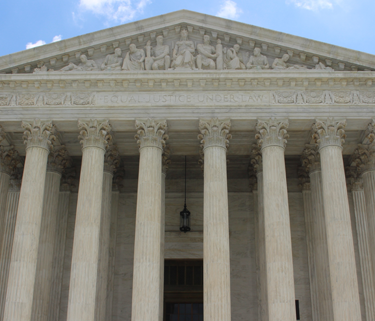
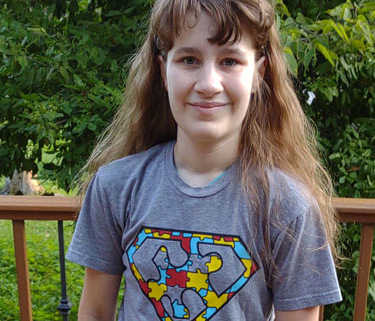
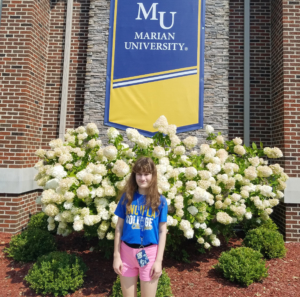 Lauren has a bright future. She graduated from her Indiana high school at the height of the COVID-19 pandemic, but she didn’t let that stop her from advancing her education. Currently, she is working towards an associate degree in animal science, her long-time passion. With only one class remaining, she is set to get her degree this year.
Lauren has a bright future. She graduated from her Indiana high school at the height of the COVID-19 pandemic, but she didn’t let that stop her from advancing her education. Currently, she is working towards an associate degree in animal science, her long-time passion. With only one class remaining, she is set to get her degree this year.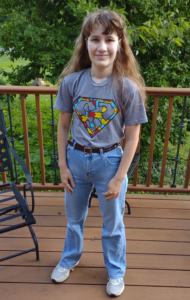 “I have to constantly monitor the account to make sure I am not working too much so that I can keep all my benefits. The support is what makes it possible for me to work, but if I do work then I could lose the support. It makes it impossible to improve and try new things. I have not gone over the limit, but the low level does make it impossible to be responsible and save for larger purchases like a car or home of my own. I am stuck as a renter or with poor-quality transportation, and I am not able to plan for the future, like retirement—things that other people my age are able to do.”
“I have to constantly monitor the account to make sure I am not working too much so that I can keep all my benefits. The support is what makes it possible for me to work, but if I do work then I could lose the support. It makes it impossible to improve and try new things. I have not gone over the limit, but the low level does make it impossible to be responsible and save for larger purchases like a car or home of my own. I am stuck as a renter or with poor-quality transportation, and I am not able to plan for the future, like retirement—things that other people my age are able to do.”
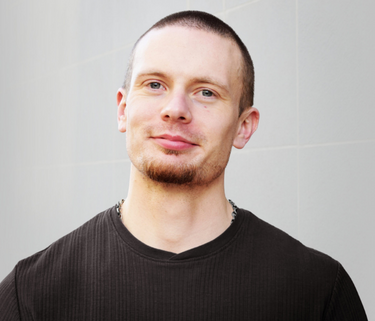
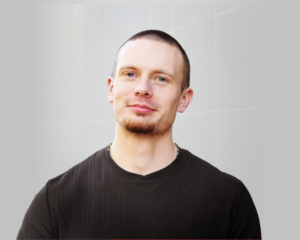
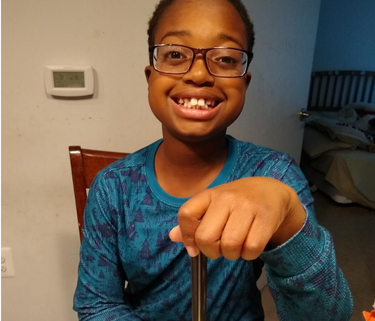
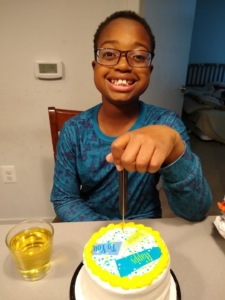
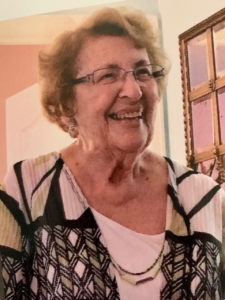 In 1964, at age 40, I was happily married for 17 years and the mother of three children—a daughter, 14, and sons, seven and 10. With all three children in school, I decided to enter college to fulfill a lifelong dream. Shortly after I started, I found out I was pregnant. I was stunned. Life changed for all of us once my baby, Bruce, was born. But my desire to attend college never waned. I started taking courses on nights, weekends, and in the summer, juggling my responsibility to four children and to my aging parents.
In 1964, at age 40, I was happily married for 17 years and the mother of three children—a daughter, 14, and sons, seven and 10. With all three children in school, I decided to enter college to fulfill a lifelong dream. Shortly after I started, I found out I was pregnant. I was stunned. Life changed for all of us once my baby, Bruce, was born. But my desire to attend college never waned. I started taking courses on nights, weekends, and in the summer, juggling my responsibility to four children and to my aging parents.